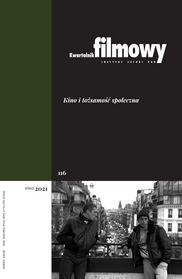Kino (anty)narodowe? Uczta wigilijna Luisa Garcíi Berlangi
(Anti)national Cinema? Plácido by Luis García Berlanga
Author(s): Dominika ZielińskaSubject(s): Post-War period (1950 - 1989), Film / Cinema / Cinematography, History of Art
Published by: Instytut Sztuki Polskiej Akademii Nauk
Keywords: Luis García Berlanga; national cinema; españolada; dictatorship; Francisco Franco; new Spanish cinema;
Summary/Abstract: The author discusses the film Plácido (1961) by Luis García Berlanga in the context of the changes of national cinema in Spain at the beginning of the second half of the 20th century. The circumstances of the film’s production, the interference of censorship, as well as the subject matter and the author’s style are the issues that the author reflects on as part of the discourse of propaganda (historical) and escapist (film españolades) cinema, introduced by Francoists programmatically at the turn of the 1930s and 1940s. As a representative of New Cinema, in the 1950s and 1960s Berlanga was one of those who, in cooperation with the author and screenwriter Rafael Azcona, revolutionized the concept of national cinema in the country. Referring to the works of Spanish theoreticians and experts on Berlanga’s work, the author underlines the importance of Plácido in the socio-political context of the time, as well as the impact of the movie on the reinterpretation of the category of national cinema in Spain.
Journal: Kwartalnik Filmowy
- Issue Year: 2021
- Issue No: 116
- Page Range: 103-120
- Page Count: 18
- Language: Polish

